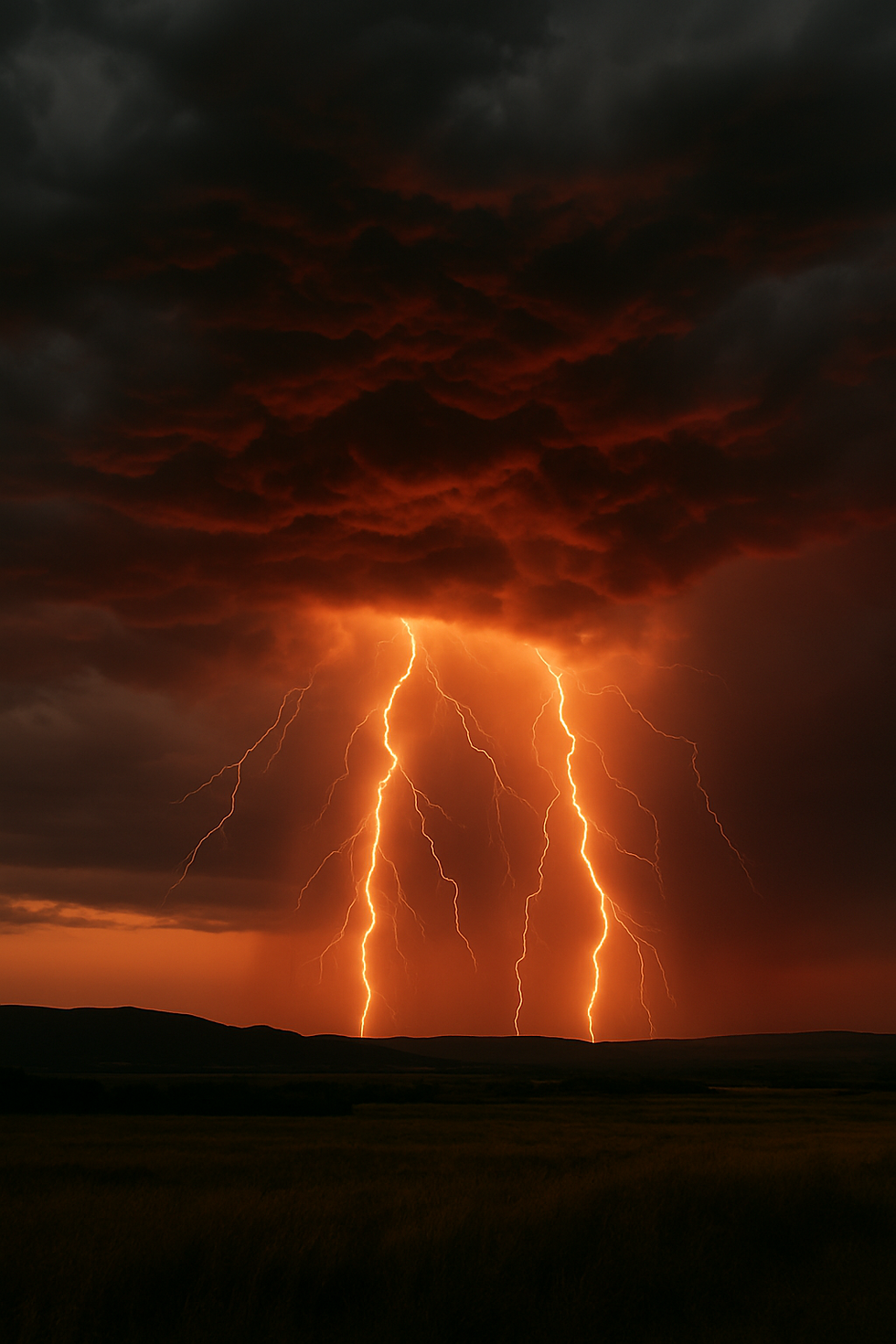Does God’s Wrath Always Lead to Death? And Is It the Same as Judgment?
- dktippit3
- Aug 1, 2025
- 4 min read
Updated: Aug 4, 2025

When we hear the word “wrath,” we often think of uncontrollable anger, punishment, or divine fury. But what does Scripture actually mean when it speaks of the wrath of God? Does His wrath always result in death? And can it be equated with His judgment?
These are not just theological puzzles. They are deeply personal questions about the character of God. Let’s explore them carefully — and even take a quick dive into the original biblical language — to better understand what’s really being said.
What Is God’s Wrath, Really?
In Scripture, wrath refers to God’s holy, righteous response to sin — not petty rage, but a just and measured reaction to evil.
New Testament Word Study
Greek Word: ὀργή (orgē)
Strong’s Concordance Number: G3709
Definition: Anger, indignation, vengeance; in biblical usage, it reflects God’s settled opposition to sin — not a loss of control, but a moral response.
Old Testament Word Study
Hebrew Words: אַף (aph) — Strong’s H639; often translated “anger,” it literally refers to the nose or nostrils flaring; חֵמָה (chemah) — Strong’s H2534; conveys heat, fury, or hot displeasure
In both testaments, God’s wrath is portrayed as deeply personal and holy — not a temper tantrum, but the righteous anger of a just King whose love will not tolerate sin forever.
Does God’s Wrath Always Lead to Death?
Not always — but sometimes, yes.
There are moments in Scripture where God’s wrath results in immediate physical death. But there are just as many — if not more — where wrath leads to discipline, delay, or divine mercy.
Examples Where Wrath Leads to Death:
Acts 5: Ananias and Sapphira lie to the Holy Spirit and drop dead.
Exodus 12: The final plague — the death of Egypt’s firstborn — is a direct result of divine wrath.
These are sobering moments that reveal God’s holiness and justice. But even in the Old Testament, we see that God is slow to anger, giving warnings, sending prophets, and offering chances to turn.
Examples Where Wrath Does Not Lead to Death:
Hebrews 12:6 tells us that God disciplines those He loves — wrath expressed in correction, not destruction.
In 2 Kings 24, God’s judgment of Israel results in exile, not extinction. Even in wrath, He preserves a remnant.
In Jonah 3, God sends Jonah to warn Nineveh. The people repent — and wrath is withheld.
In other words, God’s wrath doesn’t always kill. Sometimes it corrects. Sometimes it waits. Sometimes it leads to mercy.
Is Wrath the Same as Judgment?
They’re deeply connected — but not identical.
Wrath is God’s holy emotional response to sin.
Judgment is the decision or action God takes based on that response.
Think of wrath as the fuel, and judgment as the fire that may or may not follow. One stirs the other — but they are distinct.
When Wrath and Judgment Overlap:
Romans 1:18 – “The wrath of God is revealed from heaven against all ungodliness…”
Revelation 20 – God’s final judgment includes wrath but focuses on eternal consequences.
The plagues of Egypt – God’s wrath was unleashed through specific, escalating judgments.
When Judgment Isn’t Wrathful:
God doesn’t only judge with wrath. Sometimes He judges to discipline, reveal, or restore.
In Romans 2:4–5, we learn that people “store up wrath” for themselves — implying it hasn’t yet been poured out. God’s patience delays judgment to allow for repentance.
And of course, at the cross, Jesus absorbed both wrath and judgment — but for the believer, there is now no condemnation (Romans 8:1).
Not All Judgment Leads to Death
It’s worth saying plainly: Not all judgment leads to death. God’s judgment can take many forms — exposure of sin, a turning over to consequences, or spiritual discipline that aims at restoration rather than ruin.
This is an important distinction, and it deserves a fuller treatment than we can give it here. In a future blog post, we’ll take a closer look at how God’s judgments function in Scripture — from Noah’s flood to Paul’s thorn — and what they reveal about His character.
Why This Matters
God’s wrath isn’t reckless. It’s not cruel. It’s not unhinged. It’s holy. It’s just. And it’s always consistent with His love.
Wrath shows us that God takes sin seriously. But it also reveals that He takes mercy seriously, too. The ultimate proof of that is the cross, where wrath and mercy collide.
“But God shows His love for us in that while we were still sinners, Christ died for us. Since, therefore, we have now been justified by His blood, much more shall we be saved by Him from the wrath of God.” — Romans 5:8–9
If you’ve said yes to Jesus, God’s wrath no longer rests on you — it rested on Christ. That means you can live not in fear of judgment, but in gratitude for grace.
Let me know in the comments: What part of God’s justice or mercy do you wrestle with most? And stay tuned for the next post — “When Judgment Doesn’t Mean Death: Understanding God’s Justice Without Fear” — coming soon.
.png)



Comments